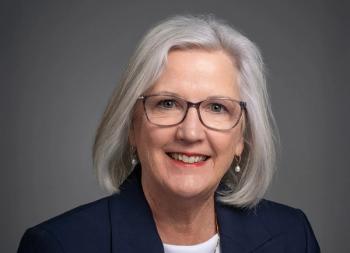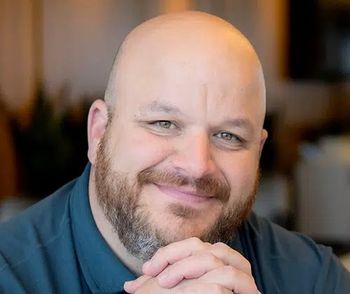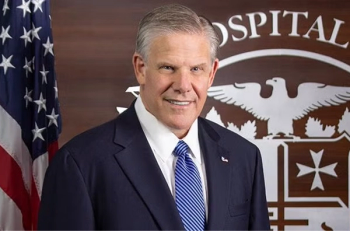
Lessons from a doctor fighting cancer: ‘It’s really scary to be a patient’ | Data Book podcast
Arti Masturzo, the chief medical officer of CCS, talks about her diagnosis of breast cancer and how the healthcare industry needs to do better for patients.
Arti Masturzo comes from a family of doctors.
A board-certified physician in internal medicine, Masturzo grew up in a village in India, where her grandfather was a doctor in a small village.
“It’s in my blood,” she says.
Today, Masturzo is the chief medical officer of CCS, a provider of care programs and home-delivered medical supplies for patients with chronic conditions. She served as a vice president at Humana, and she’s worked as a medical director at St. Elizabeth Healthcare in Kentucky and UC Health in Cincinnati.
Masturzo describes herself as a passionate advocate for value-based care. Even with her vast experience, she has gained new insights into healthcare as a patient.
In the spring, Masturzo shared that she is battling breast cancer. In the latest episode of Data Book, a podcast from Chief Healthcare Executive®, she talks about her journey and the patient’s perspective of the healthcare industry.
“It's been truly transformational, for someone who bleeds healthcare and really wants value-based care, for someone who wants healthcare to change for the better,” Masturzo says. “And sometimes things happen for a reason. I needed this insight. And this insight has truly changed me as a person, professionally and personally.”
“And I would say, from a healthcare executive standpoint, I would sum it up as: it is really scary to be a patient,” she continues. “The care is extremely siloed. The incentives are not aligned for my best health. The people doing the work are burned out, exhausted. And there is no one reaching across the table from payer and provider, health system, patient, all the other supporting, ancillary things that you need. There's no connection.”
Masturzo says she’s been getting exceptional care from her doctors and nurses, and some of those treating her are friends and former colleagues. But she also shares the problems that could impede patient care and add stress to an already difficult time.
While healthcare apps are making it more convenient to schedule appointments or see test results, Masturzo also said patients shouldn’t learn about a suspicion of cancer on the app, as she did.
“There is an app that gives me data results before my doctor sees them, which is, by the way, very scary, if you're not a doctor,” Masturzo says. “I learned that I had cancer before my doctor did, so if that tells you something. I'm a physician. So I can process this, right? How does someone who doesn't have a medical background, or doesn't have an advocate with them, get through this?”
Masturzo talks about the need to move toward value-based care and away from the fee-for-service model.
“We are all doing one-off care when we do health care,” she says. “It is not a well-orchestrated thing as it should be. And the quarterback, the person who really should be quarterbacking isn't really connected to all the other things that are happening, isn't paid to be connected to all the things that are happening, because it's a fee-for-service world. And this doesn't work.”
Masturzo discusses the need to consider all of the social drivers of a patient’s health, including economic challenges such as food and housing insecurity, to loneliness, which can be a problem for anyone regardless of income.
Her advice for physicians is simple. “Just put yourself in my shoes,” she says.
And she reminds everyone of the importance of regular screenings.
“Don't skip your cancer screenings,” she says. “I was this close to not getting my mammogram this year, because I had a normal one and thought, ‘I'm not at risk.’ So don't skip your cancer screenings.
“And then for those who are patients, I would say: Advocate for yourself.”
In a fascinating discussion, she talks about the fears patients have; the need for better and more empathetic communication; the importance of meeting patients’ emotional needs; having help available when a patient needs it and not just at a support group that meets every few weeks; designing technology and apps with the perspective of patients and doctors; the words patients need to hear and the well-meaning questions that shouldn’t be asked.






























